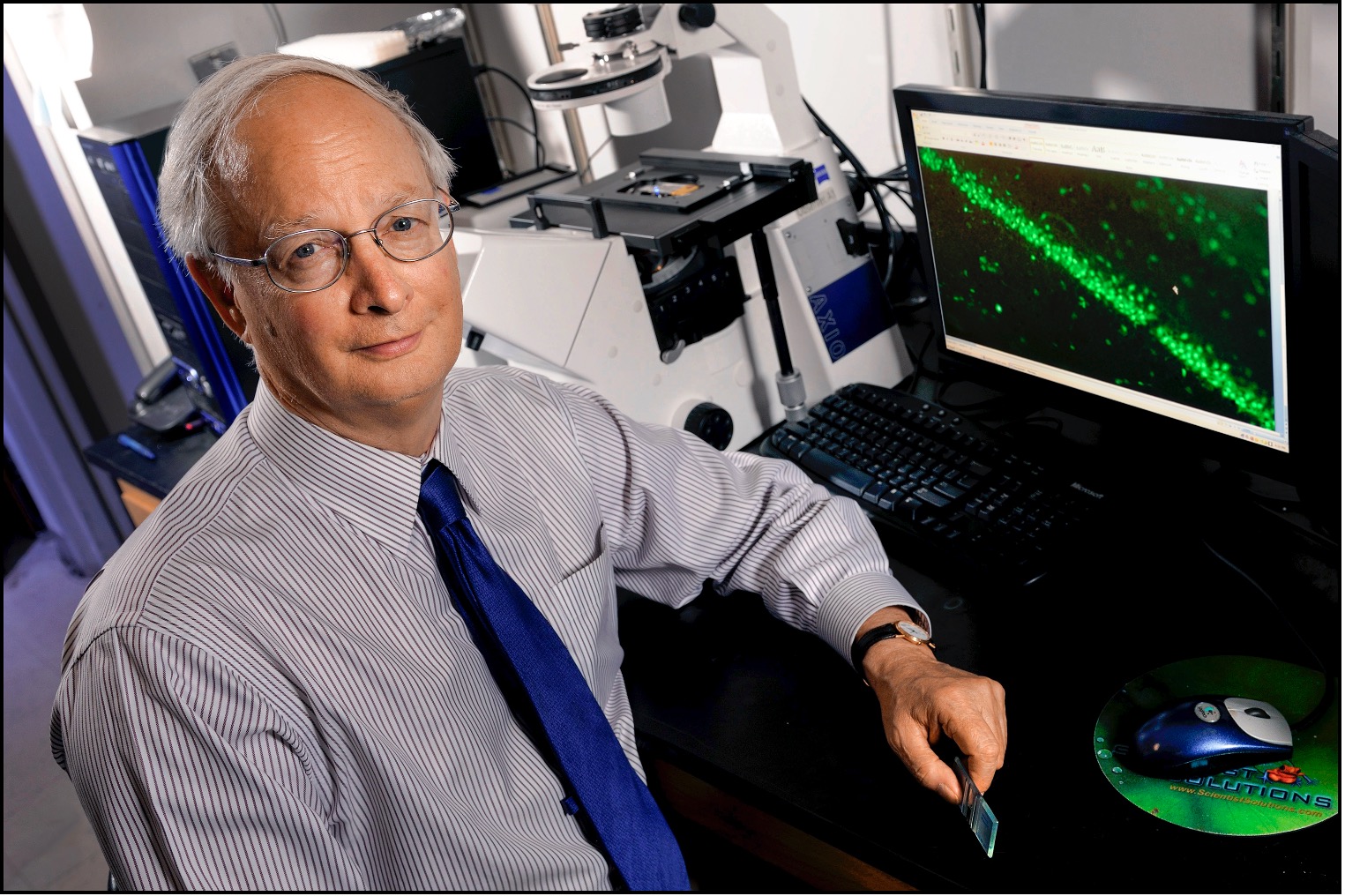
Dr. Raymond Dingledine, Professor and former chair of Pharmacology and Chemical Biology, received the 2023 Axelrod Prize (shared with Mark Bear, MIT) from the Society for Neuroscience.
Dr. Dingledine is a pioneer in the pharmacology of glutamate receptors. He demonstrated that glycine, in addition to glutamate, is required for NMDA receptor activation and coined the term “coagonists” to describe the novel relationship between the two neurotransmitters. He also revealed multiple mechanisms by which properties of postsynaptic glutamatergic receptors are regulated, including the determinants of their calcium permeability. Dingledine has frequently adapted and incorporated new techniques and technologies to address key questions. Early in his career he helped develop electrophysiological recordings from thin hippocampal slices, and his lab was the first to express NMDA receptors in frog oocytes for quantitative pharmacology analysis. His recent work is focused on seizure-induced neuroinflammation, which has strong potential for clinical translation. He and his colleagues demonstrated a profound role for EP2 receptor activation by prostaglandin E2 in neuropathologies caused by upregulation of cyclooxygenase-2. He cofounded the Emory Chemical Biology Discovery Center as well as two biotechnology companies working to develop treatments for cerebral ischemia and neuroinflammation. In addition to his rigorous scientific work, Dingledine has been fortunate to mentor outstanding students and postdoctoral researchers. He has trained over 60 scientists, most of whom have gone on to highly successful careers in academia, industry, or government. His trainees are inspired by the collaborative atmosphere he fosters and his commitment to applying quantitative, measurable, and objective criteria to describe results and analyze scientific data.
Dr. Dingledine cofounded the Emory Chemical Biology Discovery Center as well as two biotechnology companies working to develop treatments for cerebral ischemia and neuroinflammation. In addition to his rigorous scientific work, Dingledine has been fortunate to mentor outstanding students and postdoctoral researchers. He has trained over 60 scientists, most of whom have gone on to highly successful careers in academia, industry, or government. His trainees are inspired by the collaborative atmosphere he fosters and his commitment to applying quantitative, measurable, and objective criteria to describe results and analyze scientific data.
The Julius Axelrod Prize honors scientists with distinguished achievements in the broad field of neuropharmacology or a related area and exemplary efforts in mentoring young scientists. The award is endowed by the Eli Lilly and Company Foundation and includes a $30,000 prize and travel to SfN’s annual meeting.

